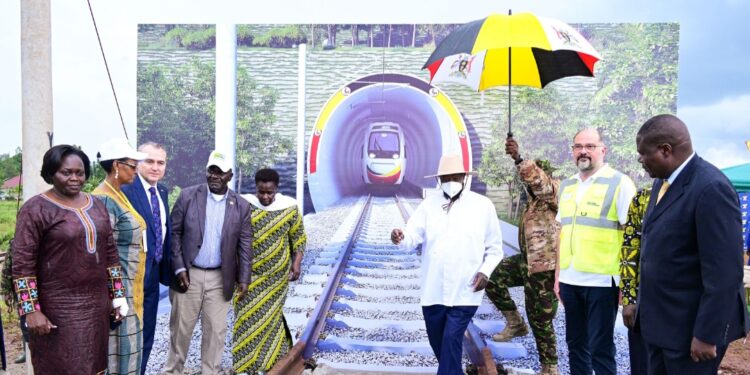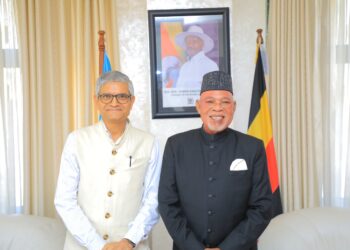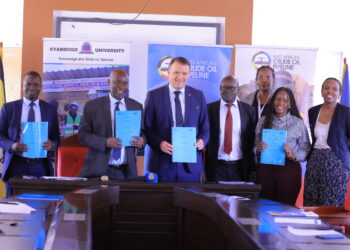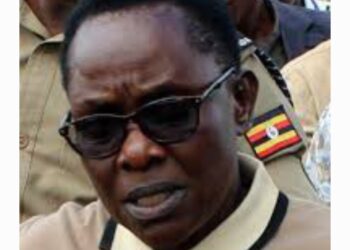President Yoweri Kaguta Museveni has today launched the construction of the Kampala-Malaba Standard Gauge Railway (SGR).
The SGR, a key element of Uganda’s national infrastructure strategy, is designed to modernise the country’s transport network, streamline logistics, and boost regional trade. The project has garnered significant attention, not just from local stakeholders, but also from international partners who recognize the potential of the railway to reshape Uganda’s economy.
The SGR project, which will link Uganda’s capital, Kampala, to the key border town of Malaba, is part of a broader effort to enhance East African trade routes. In October this year, Uganda signed an agreement with a Turkish firm Yapi Merkezi to build the 273-kilometre railway.
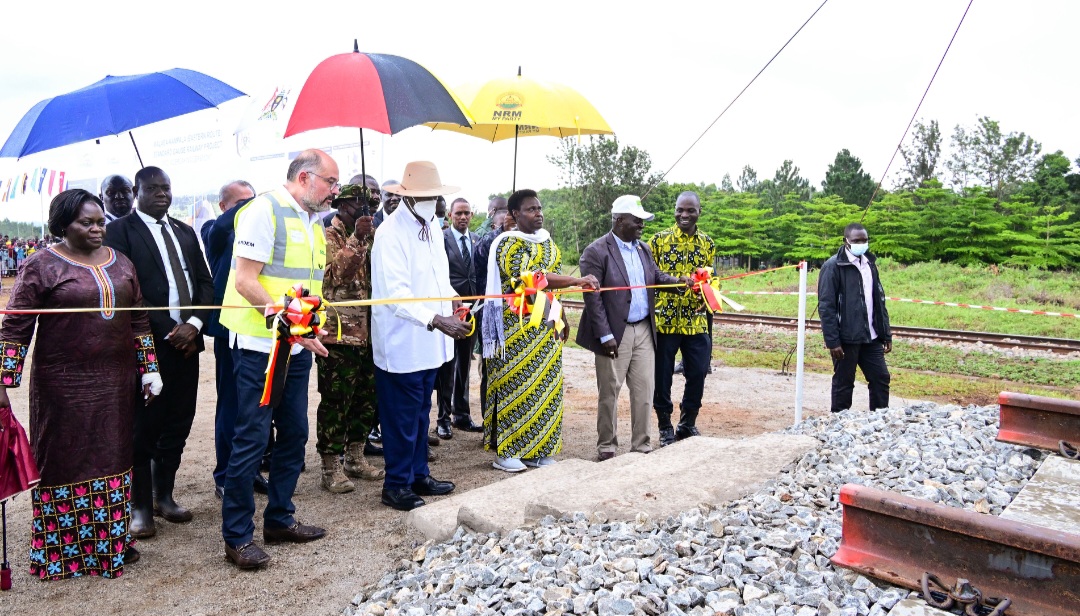
The railway line will run from Malaba to Kampala through Tororo, Butaleja, Namutumba, Luuka, Iganga, Mayuge, Jinja, Buikwe, Mukono and Wakiso. The project is expected to be completed within 48 months starting in November 2024.
During the groundbreaking ceremony for the project in Tororo District, President Museveni reiterated the importance of rationalising Uganda’s infrastructure and public services to reduce inefficiencies and spur economic growth.
Addressing recent debates in Parliament, President Museveni said that he explained the concept of rationalisation as removing the unreasonable to adopt a more practical and efficient approach.
“Why do we have both the Uganda Coffee Development Authority (UCDA) and the Ministry of Agriculture? Isn’t that a waste of money? Even in the road sector, why should we have the Ministry of Transport and UNRA duplicating efforts? Rationalisation addresses such inefficiencies,” he stated.
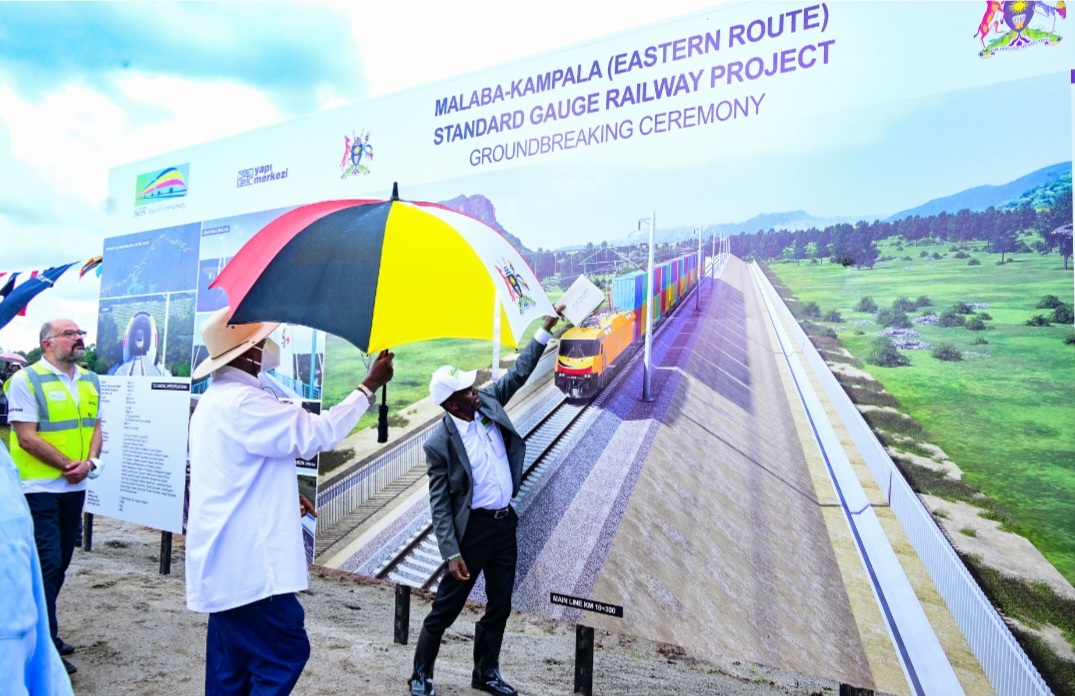
The President also linked rationalisation efforts to Uganda’s broader economic recovery journey since 1986. He noted that while the economy has expanded and diversified, the country’s transport system remains inefficient and costly.
“Our transport system is irrational. Roads are overcrowded with cars and cargo. This leads to slow movement, increased traffic, and damaged roads. To solve this, cargo must move to railways and waterways, while petroleum products will be transported through pipelines,” President Museveni said.
He further revealed plans for pipelines connecting Kenya to Uganda and extending to Congo and Tanzania, which will ease petroleum transportation. He also announced the construction of airports near Kidepo, Bwindi, and Kasese to promote tourism, enabling tourists to travel directly to national parks.
The President also emphasised the economic benefits of railways over road transport, describing them as cheaper and more sustainable.
“Transporting a 20-feet container from Mombasa to Kampala by train will cost 50% less than by road. Roads should primarily serve passengers, while cargo moves on trains,” he explained.
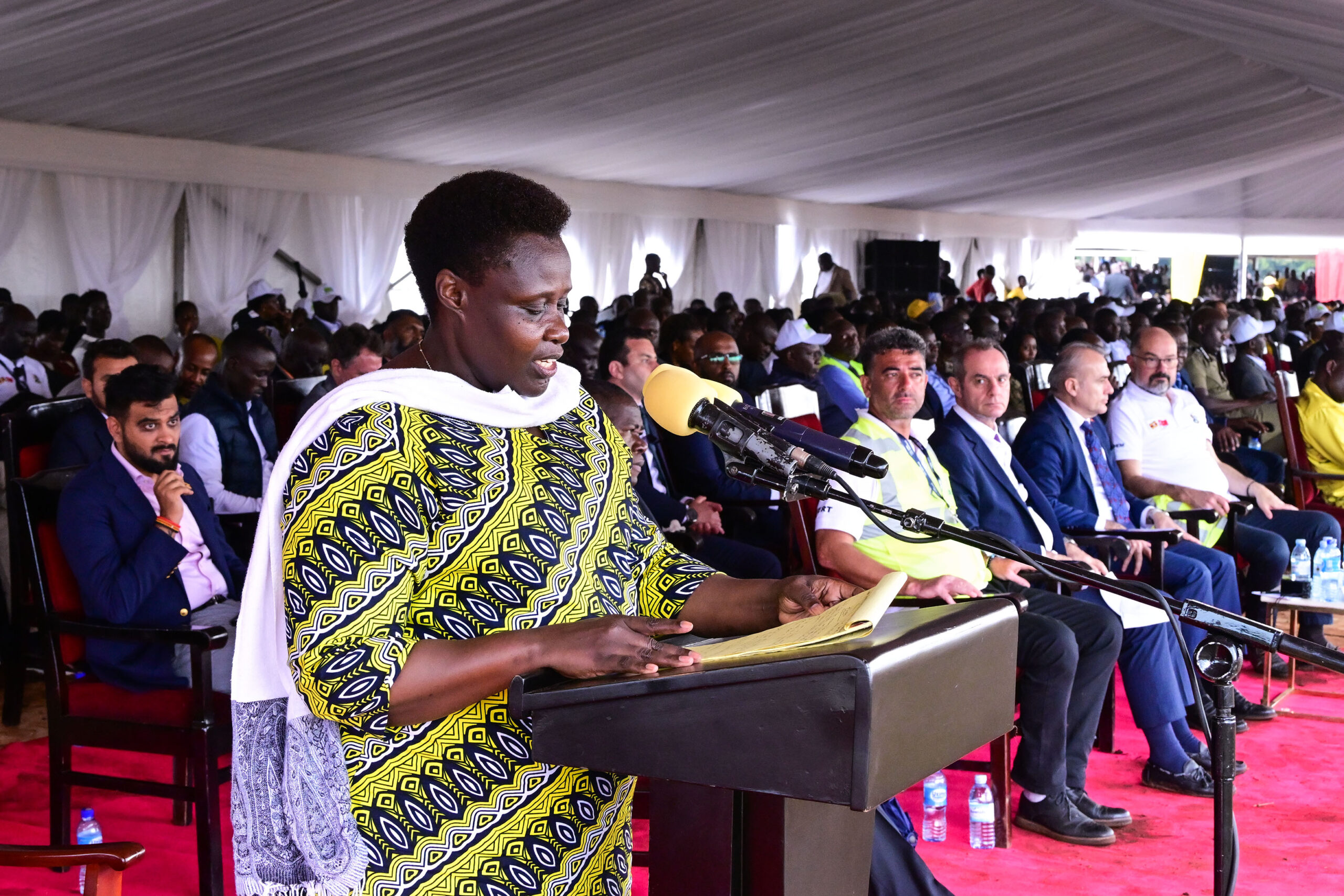
He highlighted the success of Kampala’s passenger train from Nalukolongo to Namanve, urging the expansion of similar services.
“Why should one vehicle transport a single person when a train can transport 1,000 people at once? Fewer vehicles on the road mean less congestion and better efficiency,” he remarked.
President Museveni stressed the importance of affordable transport, electricity, and capital in driving economic growth.
“We are already working on cheap electricity and transport. Now, we must address the cost of capital. That’s why we introduced the Parish Development Model (PDM), which provides low-cost capital to boost businesses,” he said.
He warned against exploitative moneylenders who take advantage of vulnerable citizens.
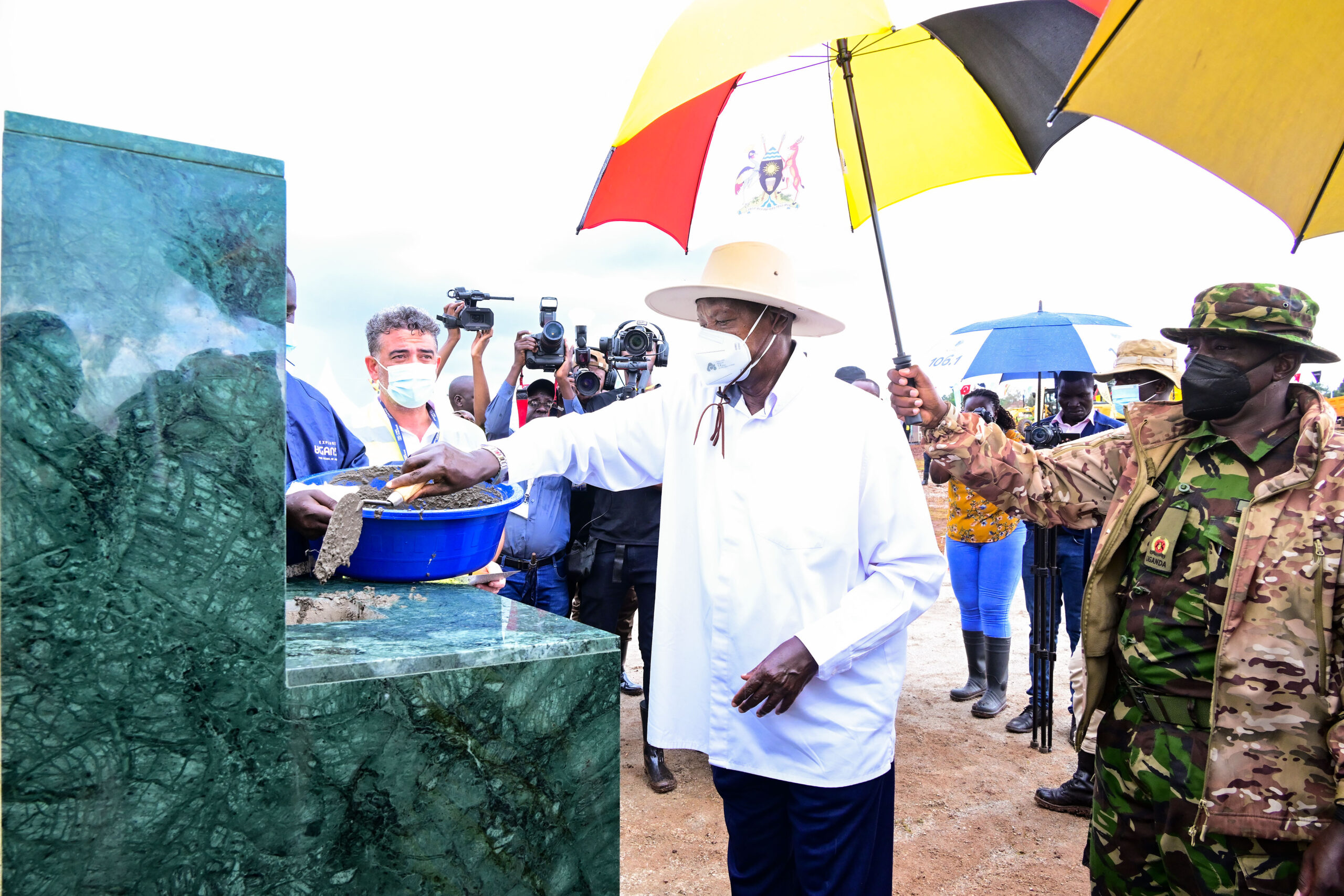
“Some of these moneylenders cheat people into signing away their land. We will put them in jail. Report such cases,” he urged.
President Museveni also called on Ugandans to optimise land use through initiatives like the Four-Acre Model and irrigation systems to increase productivity.
“If you follow these principles, you will earn a lot of money. Stop underusing and misusing land,” he advised.
He expressed gratitude to the Turkish government and the construction firm Yapi for their contributions to Uganda’s infrastructure development.
The President also highlighted the imminent arrival of petroleum revenues, which will finance key projects across the country.
“Very soon, we will have our petroleum money, and we shall use it to build critical infrastructure. This project is vital because it reduces costs, supports peace and promotes development,”he added.
The Vice President, H.E Jessica Alupo congratulated the President and the people of Uganda for the launch of the Malaba – Kampala Standard Gauge Railway line.
“Your Excellency, this has been a long-awaited project for obvious reasons and as you have always stated, Infrastructure is one of the triggers of development and transformation,”she said.
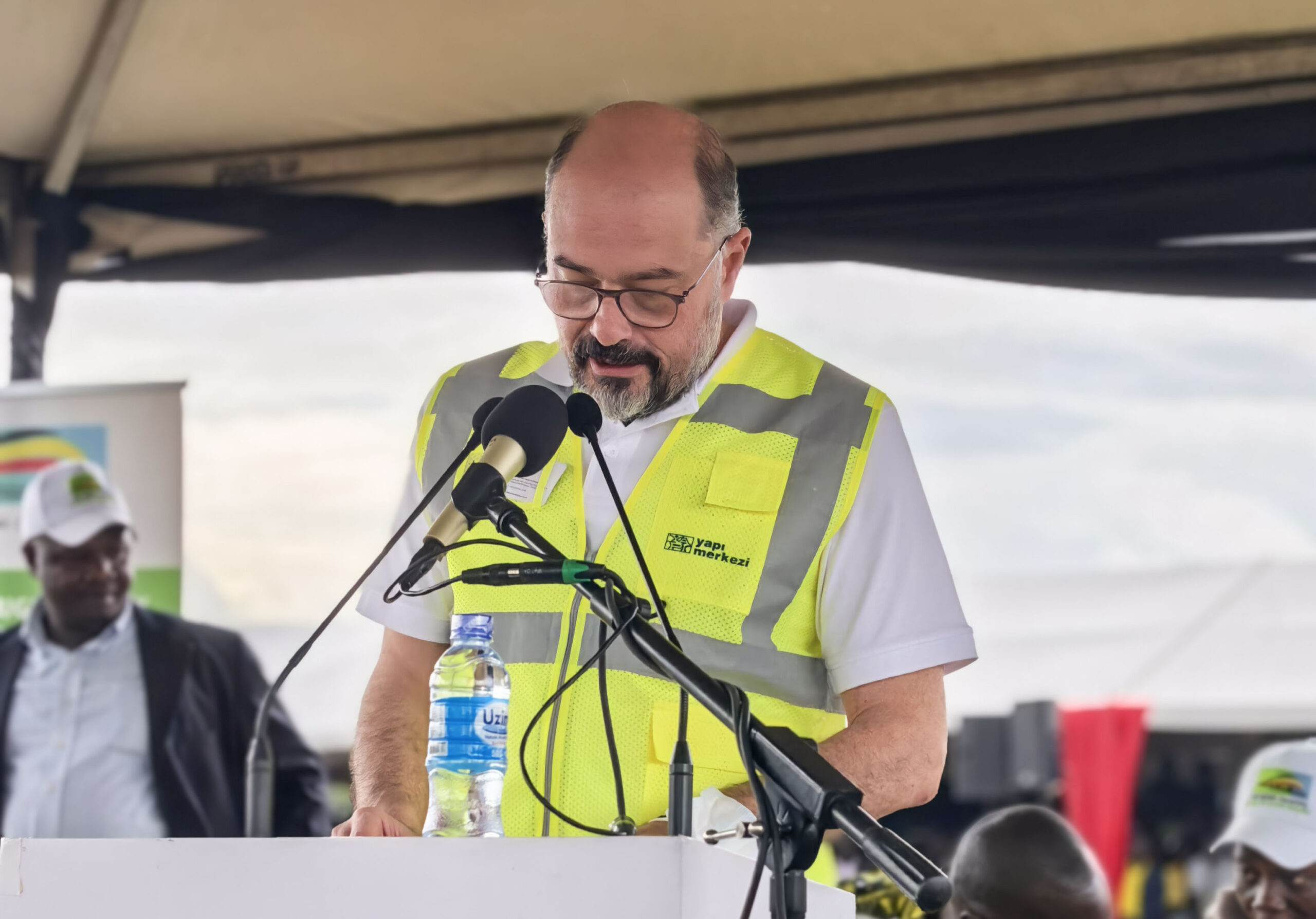
“The project will enhance our country in attracting foreign investors and thereby impacting positively on our economy through the creation of more jobs, wealth and industries.”
The Minister of Works and Transport, Gen. Katumba Wamala revealed that it was way back in 2008 when President Museveni with his counterpart, then President of the Republic of Kenya conceived the idea of developing a regional standard railway system to foster regional integration.
“A regional standard railway protocol was signed in 2014 to this effect under the auspices of the Northern Corridor Integration. The planned Standard Gauge Railway network will connect to the capitals of the respective partner states and to Mombasa Port which is the main. Entry port on the Northern Corridor,” Gen. Katumba said.
“It was decided that each nation would develop individual sections of the Standard Gauge Railway network to facilitate connections with the neighbouring countries. To date, Kenya has moved up to Naivasha and will soon as we have agreed with them starting with January, they will start the construction from Naivasha, Kisumu to Malaba.”
He added that the SGR remains one of the top government projects aligned in the country’s National Development Plan, Vision 2040 as well as in the NRM Manifesto, among others.
The Minister noted that the SGR will advance the agenda of Regional integration and it will also lower the high transportation costs leading to the reduction and overall expenditure of businesses.
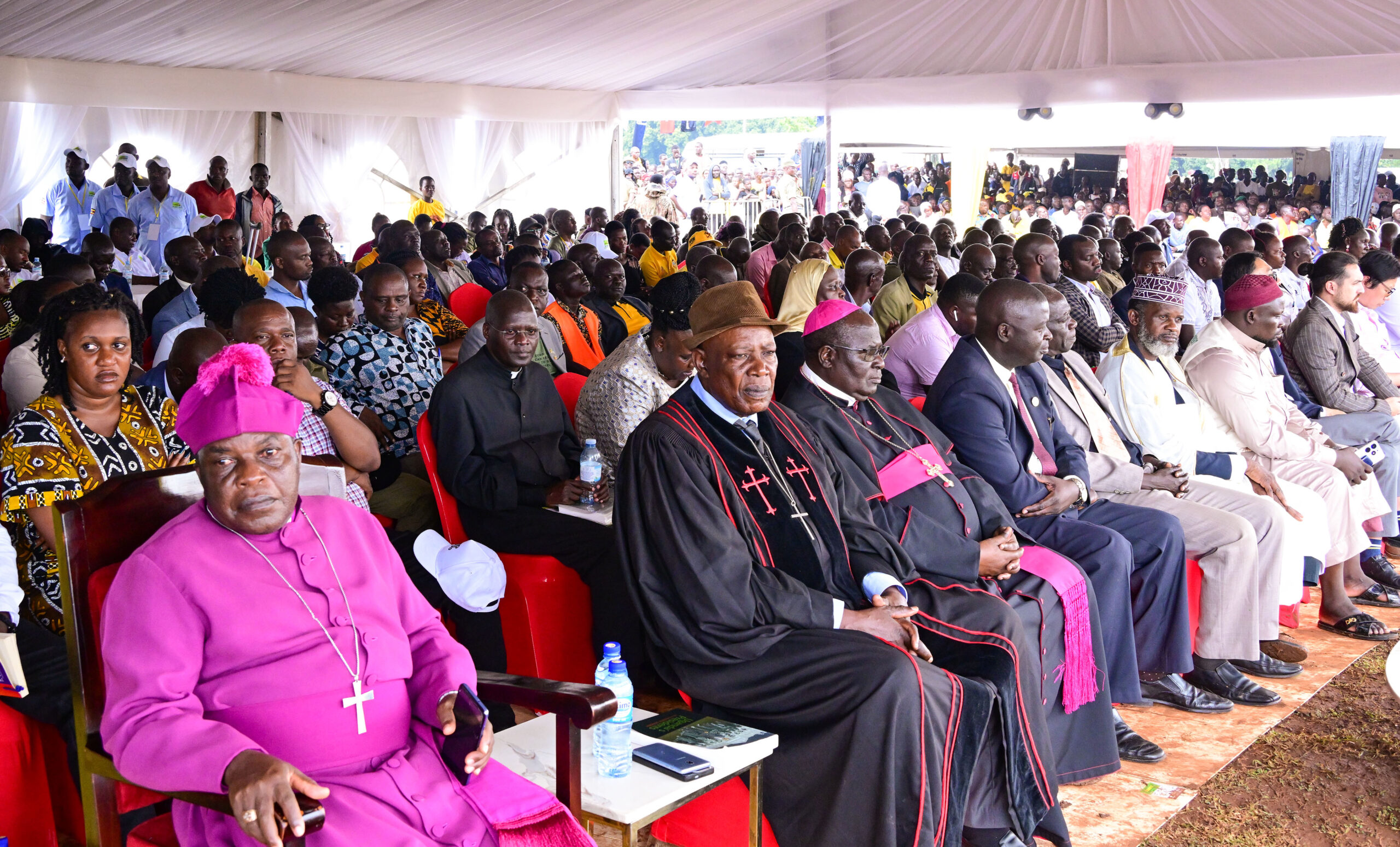
The Ambassador of Turkey to Uganda, H.E Mehmet Fatih AK said they have laid a foundation for the future of increased connectivity, economic growth and prosperity in Uganda.
“For a country positioned as a growing hub in East Africa, the railway project is more than just a transportation initiative. It will create tens of thousands of jobs during and after its construction,” he said.
“It will boost industries, improve supply chains and make Uganda more competitive in global markets. Therefore, we are more than happy to be part of Uganda’s journey towards prosperity.”
The Vice Chairperson of Yapi Merkezi Holdings, Mr. Erdem Arioglu said the event is not only for launching the iconic project but to celebrate a transformative development that will connect nations to foster economic growth and strengthen between the brotherly countries.
“The SGR project is not only a symbol of progress but also a testament to what we can achieve when we come together with a shared vision. This 273 kilometres Malaba- Kampala Railway, connecting Uganda to Kenya is set to become a vital component for trade and mobility in the region with a capacity to transport 25 million tonnes of cargo annually,” he said.
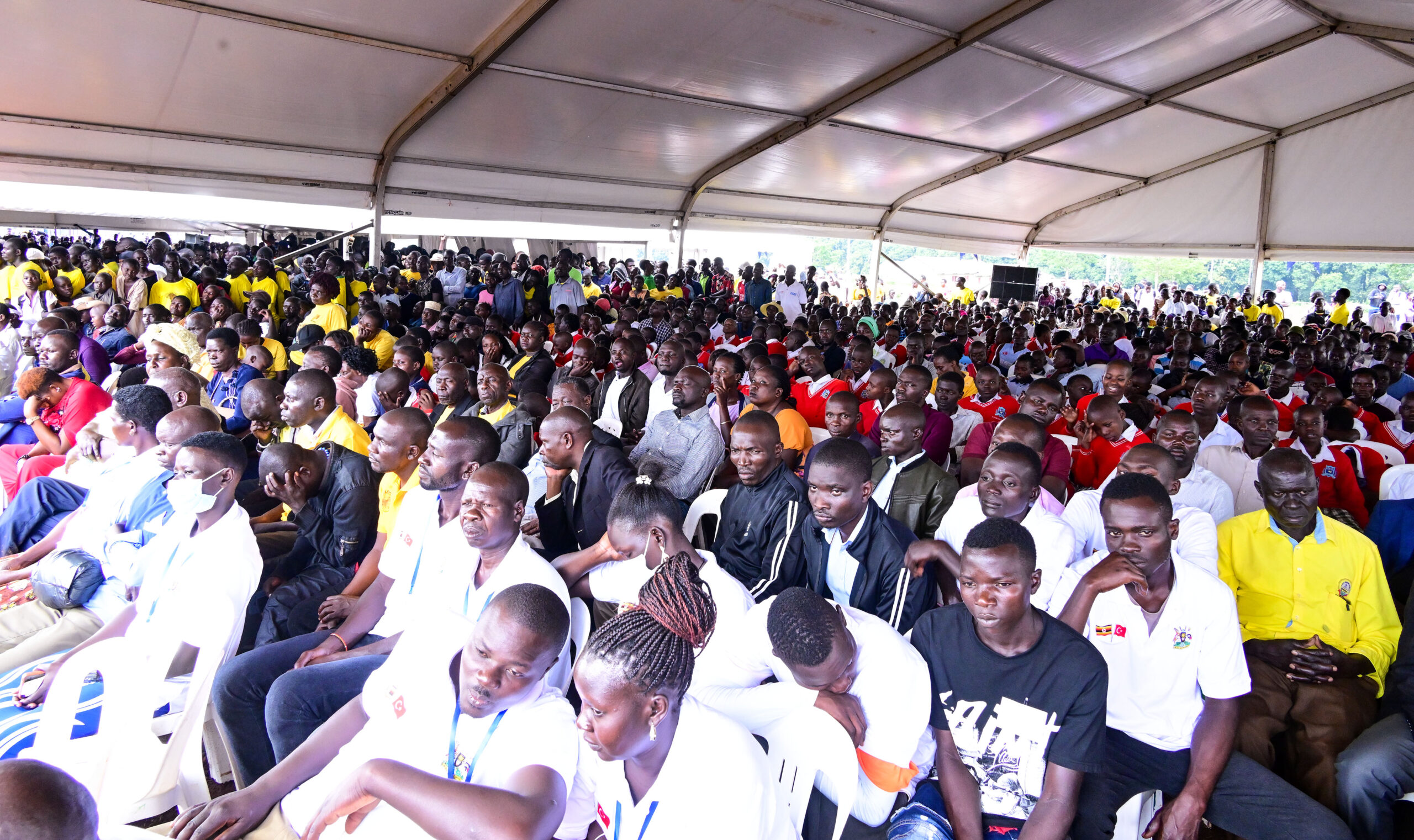
“This project will reduce transportation costs, increase efficiency and unlock the economic potential of Uganda and its neighbours.”
The event was also attended by Ministers, Members of Parliament, among other dignitaries.
Do you have a story in your community or an opinion to share with us: Email us at editorial@watchdoguganda.com


